View all filters
Clear
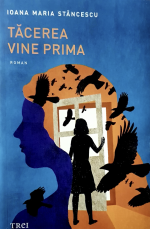
Мълчанието идва първо
Translated from
Romanian
to
Bulgarian
by Valentina Zlateva
Written in Romanian by Ioana Maria Stăncescu
8 minutes read
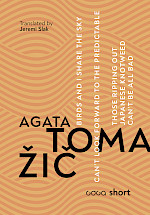
Com as aves, partilho o céu
Translated from
Slovenian
to
Portugese
by Barbara Jursic
Written in Slovenian by Agata Tomažič
9 minutes read
Sens unic
Translated from
Dutch
to
Romanian
by Cătălina Oșlobanu
Written in Dutch by Carmien Michels
10 minutes read
Sinossi
Written in Italian by Arianna Giorgia Bonazzi
4 minutes read

Коридор (Poluostrvo)
Translated from
Dutch
to
Serbian
by Tamara Britka
Written in Dutch by Lieven Stoefs
8 minutes read
Parenthese
Translated from
Spanish
to
Dutch
by Heleen Oomen
Written in Spanish by Mariana Torres
8 minutes read
O reencontro
Translated from
Romanian
to
Portugese
by Cristina Visan
Written in Romanian by Alexandru Potcoavă
9 minutes read

Eerst komt de stilte
Translated from
Romanian
to
Dutch
by Charlotte van Rooden
Written in Romanian by Ioana Maria Stăncescu
10 minutes read
Dirección única
Translated from
Dutch
to
Spanish
by Guillermo Briz
Written in Dutch by Carmien Michels
10 minutes read

Tăcerea vine prima (Silence comes first)
Tăcerea vine prima vorbeşte despre trauma unei familii contemporane şi despre blocajele de comunicare dintre mai multe generații de femei. Atunci când tăcerea se instalează într-o familie, toate comportamentele sunt creatoare de traume. Singura soluție pare să fie depășirea fricii și deschiderea rănilor.
Subiectul principal îl reprezintă relația complicată a Dorei, pe de o parte cu mama sa intruzivă și veșnic nemulțumită, pe de altă parte cu fiica adolescentă care începe să-și ceară dreptul la independență. Crescută într-o familie în care femeile și bărbații au fost dintotdeauna într-un raport de forță, copiii au acoperit goluri și dureri, fericirea personală n-a părut necesară, mamele au îmbătrânit urât, iar tații, în tăcere, Dora preferă fantasma realității. Într-un moment de curaj, ea intră într-o relație online cu Toma. Totuși, chiar și după ce ajunge la Braşov, acolo unde locuieşte bărbatul, spaima de a nu fi dezamăgită o face să se întoarcă acasă, fără ca întâlnirea să aibă loc. Când însă, Toma vine în București și o sună, Dora este nevoită să ia o decizie. Nu înainte de a rupe tăcerea şi a da cărţile pe faţă, într-o discuţie cu mama ei.
“Silence Comes First" explores the trauma within a contemporary family and the communication barriers between multiple generations of women. When silence takes root in a family, every behavior becomes a source of trauma. The only solution seems to be overcoming fear and confronting old wounds.
The central theme is on one hand Dora's complicated relationship with her intrusive and perpetually dissatisfied mother, and on the other the dynamic with her teenage daughter, who is beginning to assert her right to independence. Raised in a family where women and men were always engaged in a power struggle, where children filled voids and covered up pain, Dora searches for an escape. After a childhood where personal happiness seemed unnecessary, where mothers aged poorly, and fathers remained silent, Dora prefers the fantasy over reality. In a moment of courage, she enters an online relationship with Toma. However, even after she travels to Brașov, where Toma lives, her fear of disappointment drives her to return home without meeting him. But when Toma comes to Bucharest and calls her, Dora is forced to make a decision. However, she can only do that after breaking the silence and laying all the cards on the table in a conversation with her mother.
Written in Romanian by Ioana Maria Stăncescu
9 minutes read
Preparirano telo
Translated from
Dutch
to
Serbian
by Bojana Budimir
Written in Dutch by Nikki Dekker
7 minutes read

Korytarz (Peninsula)
Translated from
Dutch
to
Polish
by Anna Opara
Written in Dutch by Lieven Stoefs
7 minutes read
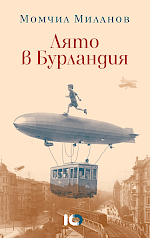
Лято в Бурландия
Осемгодишният Щерн живее в Грейщад. Баща му е дипломат, а майка му е затворена по характер художничка, която все повече се отдръпва в себе си. Без да е указано изрично, читателят отрано разбира, че родителите на Щерн се развеждат. Появява се леля Ема (сестра на близък приятел на бащата на Щерн, млад амбициозен полковник от армията), която трябва да се грижи за момчето, докато баща му е в командировка в чужбина. Той е обещал да се върне за рождения ден на Щерн точно преди Коледа, но скоро става ясно, че спазването на това обещание е много сложно, точно както политическата ситуация в страната. Грейщад подозрително напомня на София, но лесно може да бъде която и да е друга централно/източноевропейска столица. Неясно остава и кога точно се развива историята – различни препратки към 30-те, 40-те, края на 80-те или дори настоящия момент, са пръснати из повествованието. Това създава съноподобна атмосфера на déjà vu и deja vécu, предизвиквайки усещането за повторение на историята, за памет и травма. Романът смесва паралелни сюжетни линии и алюзии към теми като популизъм, паравоенни крайнодесни организации и опасните ефекти на социалните медии.
Книгата започва с няколко привидно несвързани събития в Грейщад. Обувки започват да изчезват от произволни къщи, разположени в различни части на града; мистериозен аристократ с амбициозни планове пристига с дирижабъла си. Летящата му резиденция остава заплашително да се рее над града, въплъщавайки по този начин чувството за заплаха и безпокойство, което се настанява във въздуха. Баронът има коварен план, който ще бъде разкрит много по-късно – да открадне мечтите на жителите на Грейщад.
Written in Bulgarian by Momchil Milanov
9 minutes read
Reuniunea
Written in Romanian by Alexandru Potcoavă
9 minutes read
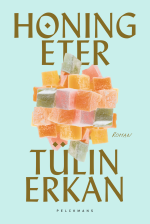
ARRIVALS / GELIȘ (Medar)
Translated from
Dutch
to
Slovenian
by Lucija Janc Novak
Written in Dutch by Tülin Erkan
6 minutes read
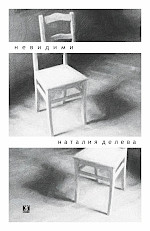
Невидими
Невидими е роман за неприемането на различните, в който деца съчиняват родителите си. Млада жена, отраснала в Дом за изоставени деца, се опитва да превъзмогне травмите от детството си. След поредица от раздели среща Дара – изоставено дете, в което разпознава себе си като малка. Привързва се към нея и решава на всяка цена да намери начин да й подари живота, който тя самата никога не е имала. Това е роман за хората в периферията на обществото. Различни сюжетни линии се преплитат, за да разкажат една обща история: на невидимостта.
Written in Bulgarian by Nataliya Deleva
10 minutes read
Toate fiarele de pe câmp
Translated from
Spanish
to
Romanian
by Silvia Alexandra Ștefan
Written in Spanish by Adriana Murad Konings
8 minutes read
Parêntesis
Translated from
Spanish
to
Portugese
by Matias Gomes
Written in Spanish by Mariana Torres
7 minutes read
Ponto de fuga
Translated from
Dutch
to
Portugese
by Pedro Viegas
Written in Dutch by Maud Vanhauwaert
9 minutes read
Vse zveri z vasi
Translated from
Spanish
to
Slovenian
by Katja Petrovec
Written in Spanish by Adriana Murad Konings
8 minutes read